
The high-tech Japanese toilet. That's what so many of you may have heard about Japan.
While others of you might be wondering why I'm writing this as a how-to. But considering how many blog posts I've seen by people who travel to Japan and inevitably get doused by one of these toilets, I believe a "how-to" is in order.
My first encounters with these toilets weren't much to speak of, except for the fact that I sometimes spent far too long trying to figure out how to flush, as I assumed if there was a panel with that many buttons, one of them must be the flush button. After desperately pressing them all and being surprised or nearly squirted, I later saw, embarrassed, a normal-looking handle on the back of the toilet itself, just like in the States.
I found out later that some panels (the square ones, usually) have flush buttons, but more often than not there's a handle or an automatic flush sensor.
Sometimes the toilet controls will be labeled in English along with the Japanese, but many of them don't. And the control panels appear in different forms as well, so the functions and icons can vary per model.
The basic functions you should be aware of, though, are the bidet and "oshiri" functions--oshiri meaning a wash for your behind. These wash functions can replace toilet paper, although in restrooms with these toilets, toilet paper is provided.
Some public toilets, such as at certain parks or outside of the ticket gate at a train station, don't have toilet paper, so you should always carry some tissue with you.
Words to Know
| Japanese | Hiragana | English |
| おしり | -- | wash for your behind |
| ビデ | -- | bidet |
| やわらか | -- | a gentler wash for your behind |
| 止 | とまる | stop |
| 停止 | ていし | stop |
| 水勢 | すいせい | water pressure |
| 弱 | よわい | weak |
| 強 | つよい | strong |
| 音量 | おんりょう | volume (for the sound) |
| 音停止 | おとていし | stop sound |
| 流す | ながす | flush |
| パワー脱臭 | パワーだっしゅう | power deodorizer |
The image below shows an example of a toilet control panel, which already has the English translations. If you want to play a flushing sound to mask any "noises", per the norm in women's restrooms, press the button with a music note or look for something like

If you dare to try a refreshing, cleansing spray in lieu of toilet paper, press either おしり, for men or women, or ビデ, for women. Not to be sexist, men, as you can also use the bidet--I'm just not sure you'd want to.
Before you press either button, make sure you are sitting on the seat. I also highly recommend pressing the minus button or "weak" button (弱) under 水勢 (water pressure), usually on the left side, as far down as it goes. You can adjust the water pressure to your liking later, but I would liken the typical "normal" pressure setting on many models to a Waterpik. Fine for your teeth, not your nether regions.
To stop the stream or spray, press the 止 button firmly. It's usually a red/orange color or is outlined in that color, in case you forget the kanji.
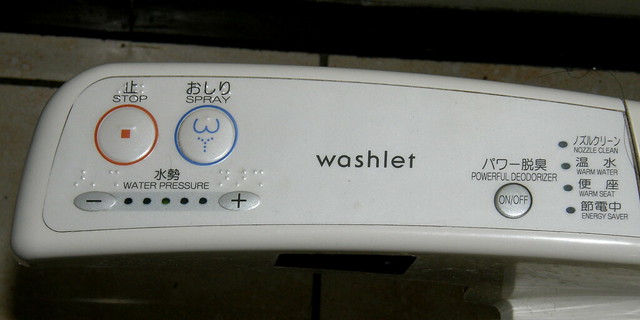 |
| A simple control panel here. |
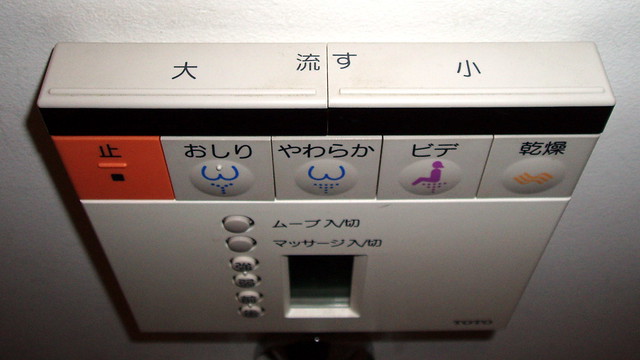 |
| Another example of an electronic Japanese toilet's controls. |
Some models have a "dry" function to use after your spray, if desired: 乾燥 (かんそう)
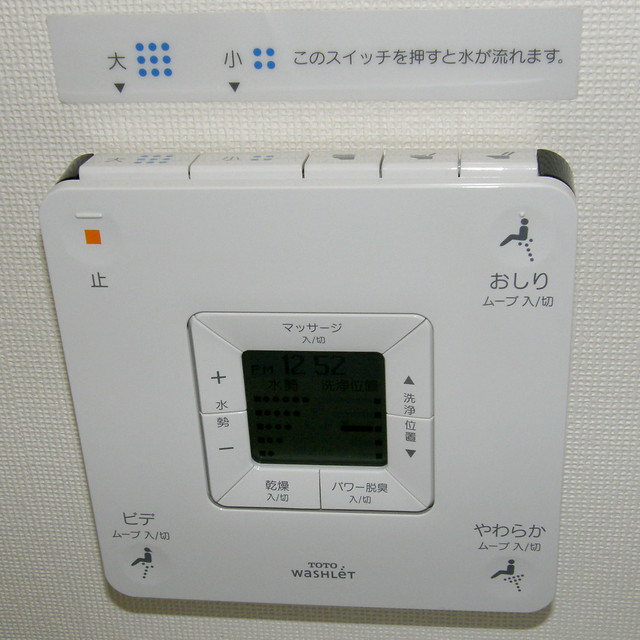 |
| And another example--the flush functions on top as well as buttons for the toilet lid |
If, while doing your business, you chose to listen to the soothing sounds of a fake toilet flush, be sure to press 音停止 to turn the sound off. If the sound turned on automatically, it will turn off by itself.
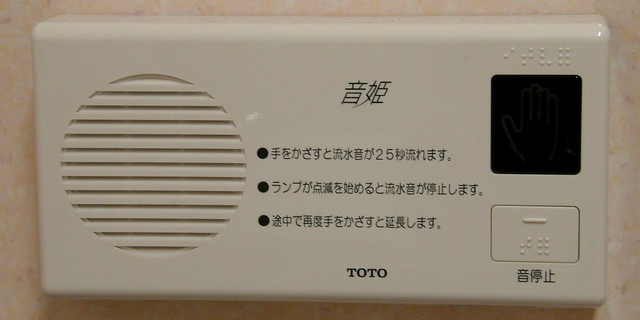 |
| You might see this strange-looking box--it's a sensor to automatically play music or a flushing sound. |
If the buttons are on a square panel, look for 流す (ながす, flush). Or you might come across a push button or a hand sensor, like the one below. Just hold your hand over it until the toilet flushes.
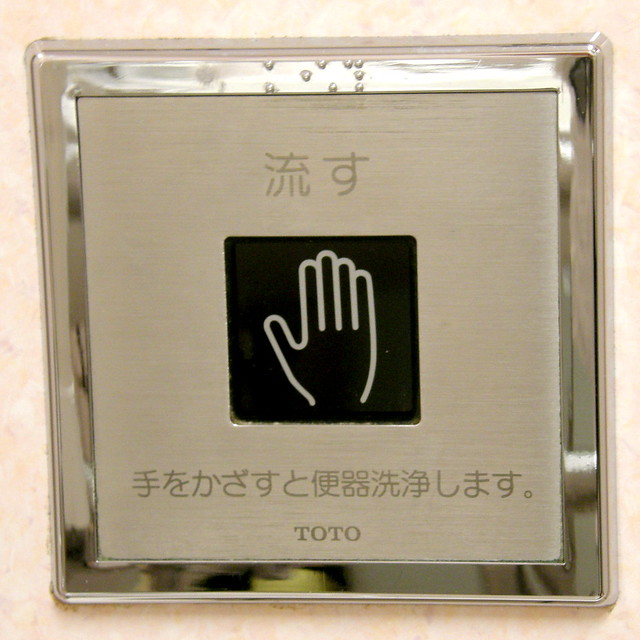 |
| Hold your hand over the sensor to flush. |
Now go use the modern restroom with confidence and behold all the great wonders of the incessantly marveled over, high-tech Japanese toilets.
*****************
This post is brought to you by Nihongo Master, an online Japanese learning site.
First photo by BrainWashers (but edited and text by me), second photo mine and all the others by Nemo's great uncle.

No comments:
Post a Comment